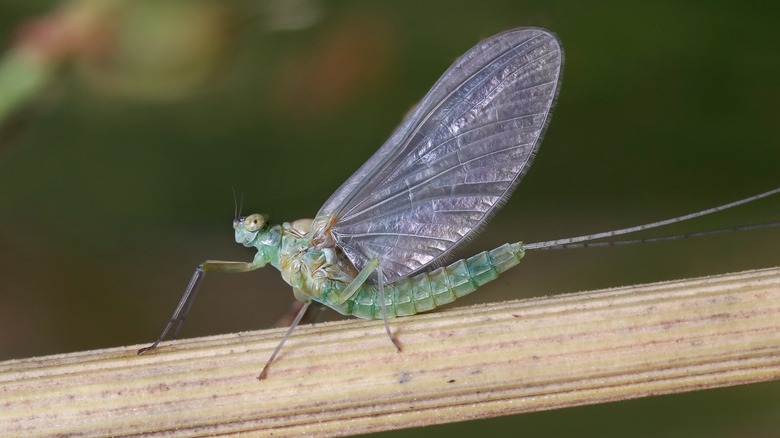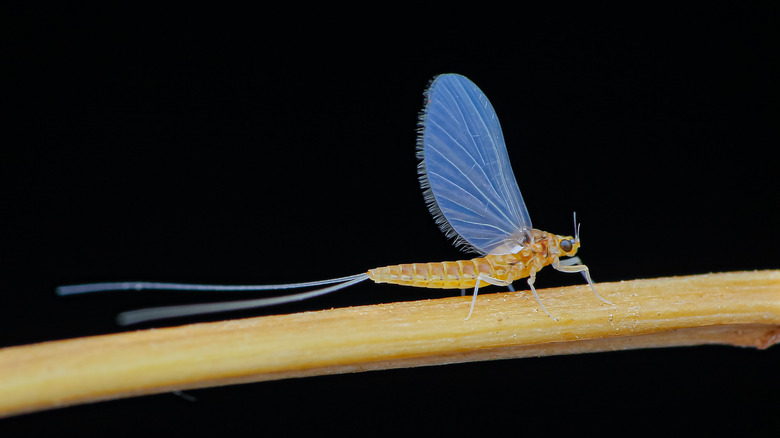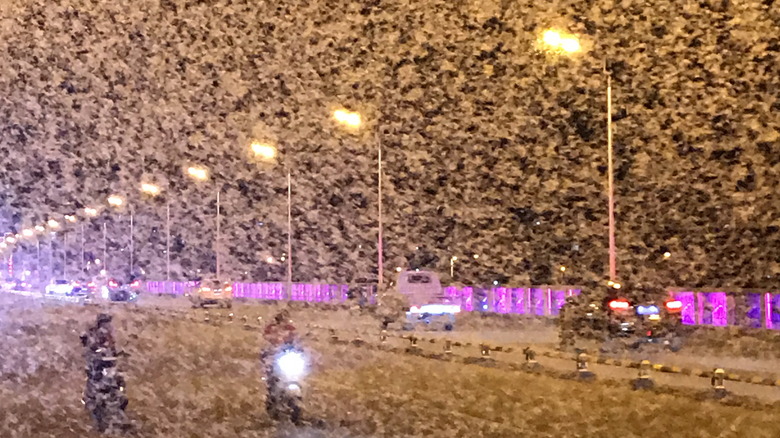All Natural Ways To Repel Mayflies, According To Our Pest Control Expert
If you have a problem with a pest like mayflies, you may be looking into how to repel the bugs naturally, especially if you have concerns about the use of chemicals and their effects on your family, pets, and environment. Speaking exclusively to House Digest, Emma Grace Crumbley, an entomologist with Mosquito Squad, says the best way to repel mayflies naturally is to simply avoid drawing them near and into your home in the first place. These insects are found around healthy freshwater areas, so if you live near a freshwater lake, stream, or pond, you have more of a need to take steps to try to repel them than someone who lives in a drier area. In reality, the presence of these insects indicates a healthy and clean freshwater body, as mayflies are unable to function in water that has chemical issues or other types of contamination.
"Mayflies are attracted to light, so keeping your house lights and porch lights off at night will help guide mayflies to other light sources, keeping them out of your space," Crumbley says. "Also, make sure that your home does not have unwanted entry points for mayflies to come in through."
Natural repellants aren't overly effective on mayflies
The adult phase of a mayfly's life is the only stage where the insect is able to fly and live outside bodies of water. Although it may seem like these bugs live a long time — particularly if you find yourself in the midst of a swarm of them — the adults actually only live incredibly short lifespans. Some only live a few minutes, while others may live a couple of days.
"As far as I know, there are no 'natural remedies' for mayfly control with scientific evidence," Emma Grace Crumbley told House Digest in an exclusive interview. "Mayflies already live so shortly as adults that their primary goal is to find and mate for reproduction. Unlike other insect pests, they will not linger around your home long enough to smell and be repelled by something you put out."
Because so many other species rely on mayflies as a food source, Crumbley emphasizes the importance of never using insecticides on the insects themselves or the water in which they breed and lay eggs. The use of such chemicals is far more likely to end up affecting the animals that eat the mayflies. Snails eat the eggs of this insect. Fish, frogs, and birds are among the animals that eat the nymphs, which are the immature insects that hatch from eggs and live in the water. Spiders, birds, and fish will eat the adult insects.
While mayflies are a nuisance, they won't cause you any harm
While the idea of getting caught in a swarm of mayflies seems incredibly unpleasant and offputting, the good news is they won't cause you any harm, as they have no way to bite, sting, or scratch humans or pets. In fact, the adults do not eat or have mouths. But that doesn't mean they aren't menaces in their own way. "Mayflies can be a nuisance when they swarm and completely cover road signs, streetlights, and even cars," Emma Grace Crumbley told House Digest in an exclusive interview. "After they swarm and lay their eggs, mayflies immediately die of exhaustion, so the hundreds to thousands of dead mayflies can pile up and leave a foul odor behind."
The timing of mayfly swarms varies, depending on where you live and on weather patterns, Crumbley says. Most swarms occur in June and July, though. So, even though the individual adults live a very short time, swarms can go on for weeks. Crumbley says that if you are having issues with swarms, speaking with a professional pest control company is your best option.


